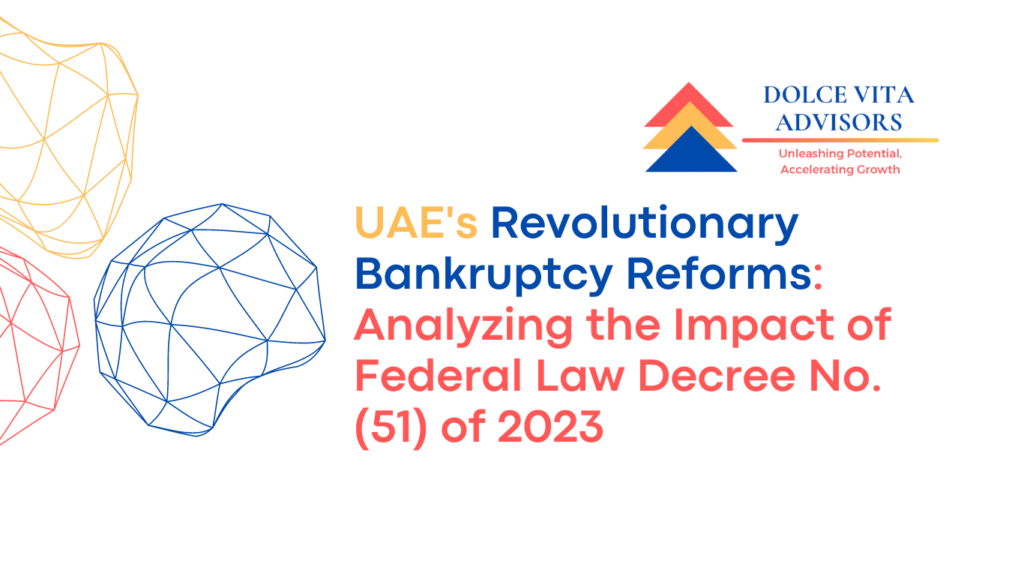
Insights by: Sumit Kochar & Jaydeep Saha
UAE Federal Gazette on the 31st of October 2023, introduced the Federal Law Decree No. (51) of 2023 (“New Bankruptcy Law”) on Financial Restructuring and Bankruptcy, and shall come into force from the 1st of May 2024. It is to be noted that the New Bankruptcy Law supersedes Federal Decree-Law No. 9 of 2016 (“Old Bankruptcy Law”), on Bankruptcy. However, all regulations and decisions that were issued to implement the Old Bankruptcy Law will continue to apply until they are replaced by regulations necessary to implement the provisions of the New Bankruptcy Law.
Here are some key provisions introduced in the recently revised New Bankruptcy Law:
Specialized Courts: The UAE is overhauling its bankruptcy and restructuring law, introducing a specialist court to oversee disputes. The courts now have a specialized approach for handling bankruptcy and restructuring cases. A section of the courts is designated to monitor and administer bankruptcy and restructuring proceedings. This section is chaired by a Court of Appeal Judge. All bankruptcy court’s decisions and judgments will be considered as writ of execution and enforceable under the new law.
Creditor Protection: Secured creditors can now enforce their rights against assets directly within the bankruptcy court. This simplifies the process and eliminates the need for separate enforcement proceedings.
Appeals Process: All decisions and judgments from the bankruptcy court can now be appealed within 30 days from the date of issuance. This is a departure from the Old Bankruptcy Law, where only judgments related to accepting or rejecting claims were subject to appeal, along with judgments concerning specific debts.
Personal Liability: Managers, board members, and liquidators can be held personally liable for certain actions, such as using risky commercial methods or favoring certain creditors to the detriment of others. This liability, similar to the Old Bankruptcy Law, now explicitly applies to actions committed up to two years before the date of payment cessation. Claims against these individuals must be filed within two years from the issuance of a judgment declaring the company bankrupt. It’s worth noting that these individuals can also face criminal liability for offenses specified in the New Bankruptcy Law. This provision aims to hold responsible parties accountable for their actions and protect the interests of creditors and stakeholders.
Extended Moratorium: The court can impose a moratorium on creditor actions throughout bankruptcy proceedings until the restructuring plan is ratified, without a specified time limit. Exceptions exist for employment and family law matters, safeguarding the rights of employees and spouses. This approach aims to prevent harm to the Bankruptcy Estate, emphasizing a balanced protection of various stakeholders’ interests. This is a notable feature of the New Bankruptcy Law in the UAE.
Resolution Focus: The New Bankruptcy Law promotes amicable settlements and expands opportunities for debtors seeking protective composition, emphasizing resolving financial difficulties through negotiation.
Filing Objections and Grievances: The New Bankruptcy Law establishes specific conditions for filing objections and grievances regarding the decisions of court or trustee. This structured process ensures fairness, transparency, and a method for addressing concerns.
The New Bankruptcy Law, as issued in the Arabic language, is available here

